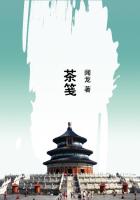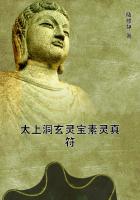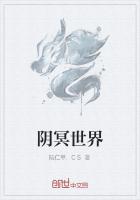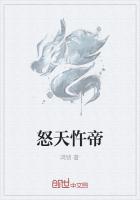The writer of this romance has been encouraged to his task by a purpose somewhat beyond that of setting out a wild tale of savage life. When he was yet a lad,--now some seventeen years ago,--fortune took him to South Africa. There he was thrown in with men who, for thirty or forty years, had been intimately acquainted with the Zulu people, with their history, their heroes, and their customs. From these he heard many tales and traditions, some of which, perhaps, are rarely told nowadays, and in time to come may cease to be told altogether. Then the Zulus were still a nation; now that nation has been destroyed, and the chief aim of its white rulers is to root out the warlike spirit for which it was remarkable, and to replace it by a spirit of peaceful progress. The Zulu military organisation, perhaps the most wonderful that the world has seen, is already a thing of the past; it perished at Ulundi. It was Chaka who invented that organisation, building it up from the smallest beginnings. When he appeared at the commencement of this century, it was as the ruler of a single small tribe; when he fell, in the year 1828, beneath the assegais of his brothers, Umhlangana and Dingaan, and of his servant, Mopo or Umbopo, as he is called also, all south-eastern Africa was at his feet, and in his march to power he had slaughtered more than a million human beings. An attempt has been made in these pages to set out the true character of this colossal genius and most evil man,--a Napoleon and a Tiberiius in one,--and also that of his brother and successor, Dingaan, so no more need be said of them here. The author's aim, moreover, has been to convey, in a narrative form, some idea of the remarkable spirit which animated these kings and their subjects, and to make accessible, in a popular shape, incidents of history which are now, for the most part, only to be found in a few scarce works of reference, rarely consulted, except by students. It will be obvious that such a task has presented difficulties, since he who undertakes it must for a time forget his civilisation, and think with the mind and speak with the voice of a Zulu of the old regime. All the horrors perpetrated by the Zulu tyrants cannot be published in this polite age of melanite and torpedoes; their details have, therefore, been suppressed. Still much remains, and those who think it wrong that massacre and fighting should be written of,--except by special correspondents,--or that the sufferings of mankind beneath one of the world's most cruel tyrannies should form the groundwork of romance, may be invited to leave this book unread. Most, indeed nearly all, of the historical incidents here recorded are substantially true. Thus, it is said that Chaka did actually kill his mother, Unandi, for the reason given, and destroy an entire tribe in the Tatiyana cleft, and that he prophesied of the coming of the white man after receiving his death wounds. Of the incident of the Missionary and the furnace of logs, it is impossible to speak so certainly. It came to the writer from the lips of an old traveller in "the Zulu"; but he cannot discover any confirmation of it. Still, these kings undoubtedly put their soldiers to many tests of equal severity. Umbopo, or Mopo, as he is named in this tale, actually lived. After he had stabbed Chaka, he rose to great eminence. Then he disappears from the scene, but it is not accurately known whether he also went "the way of the assegai," or perhaps, as is here suggested, came to live near Stanger under the name of Zweete. The fate of the two lovers at the mouth of the cave is a true Zulu tale, which has been considerably varied to suit the purposes of this romance. The late Mr. Leslie, who died in 1874, tells it in his book "Among the Zulus and Amatongas." "I heard a story the other day," he says, "which, if the power of writing fiction were possessed by me, I might have worked up into a first-class sensational novel." It is the story that has been woven into the plot of this book. To him also the writer is indebted for the artifice by which Umslopogaas obtained admission to the Swazi stronghold; it was told to Mr. Leslie by the Zulu who performed the feat and thereby won a wife.
同类推荐
热门推荐
千面风华:纨绔大小姐
她,是华夏首席催眠师。性格阴晴不定,变化莫测,却在一场催眠中被一块儿诡异的石头反噬,进入了永无休止的梦境。醒来后发现自己竟然到了另一个时空……他,是被家族人惧怕的恶魔,内心充满黑暗,只有她是他心中唯一不变的一点光明,她说:夜绯墨其实我们两个是一类人,只是用着不同的性格来掩饰自己早已伤痕累累的心,。他说:竺染婳,今生让我遇见了你,那么永生永世,生生世世,你都别想逃离我。世界精英都在玩的300个思维游戏
书中的300个思维游戏是世界各界精英为全方位提升自己的思维能力而专门设计的,每个游戏都极具代表性和独创性。这些浓缩世界顶尖聪明人的思维训练游戏,将让你在享受乐趣的同时,全面提升自己的观察力、分析力、推理力、判断力、想象力、创造力、变通力、行动力、记忆力、反应力、转换力、整合力、思考力,引发你的头脑风暴。做一个了不起的小干部
少先队小干部是少先队大、中、小队各级组织的核心与骨干,是辅导员和少先队员之间的桥梁和纽带,在少先队活动中充当着“领头羊”的角色。小干部们要带领队员做少先队的主人,就像排头领飞的大雁那样,要以身作则,处处起模范带头作用。少先队员们争取当干部不是为了“当官”,也不是为了显示对大家“指手划脚”的威风,而是要为同学们服务,同时锻炼自己,只有树立这样的信念,才有可能得到大家的拥护,成为一名了不起的小干部。中小企业28种激励误区
激励发展到今天,已然成为企业人力资源管理领域的战略性课题。对于各级主管来说,如果企业不能让一位员工为企业更好地工作,那企业可以找其他人来取代他;但如果企业不能让大多数员工甚至新招售货员更好地工作,那企业就必须激励他们。在保健因素实施成本越来越昂贵的今天,不妨尝试本书中激励因素在人力资源管理实践中的应用,您会发现——原来激励员工也可以这样做。情商到了,事就成了——让你受益一生的EQ培养
本书带领大家走进情商这所“大学”,它系统而全面为大家讲解了如何提高自己的情商。影响情商的因素很多,要想提高情商也需要多方位的努力。只有把情商培养好,才能够在社会竞争中获得更好的生存。本书引用大量国内外经典理论,从多方面给读者讲解适合中国人的情商培养方法。















